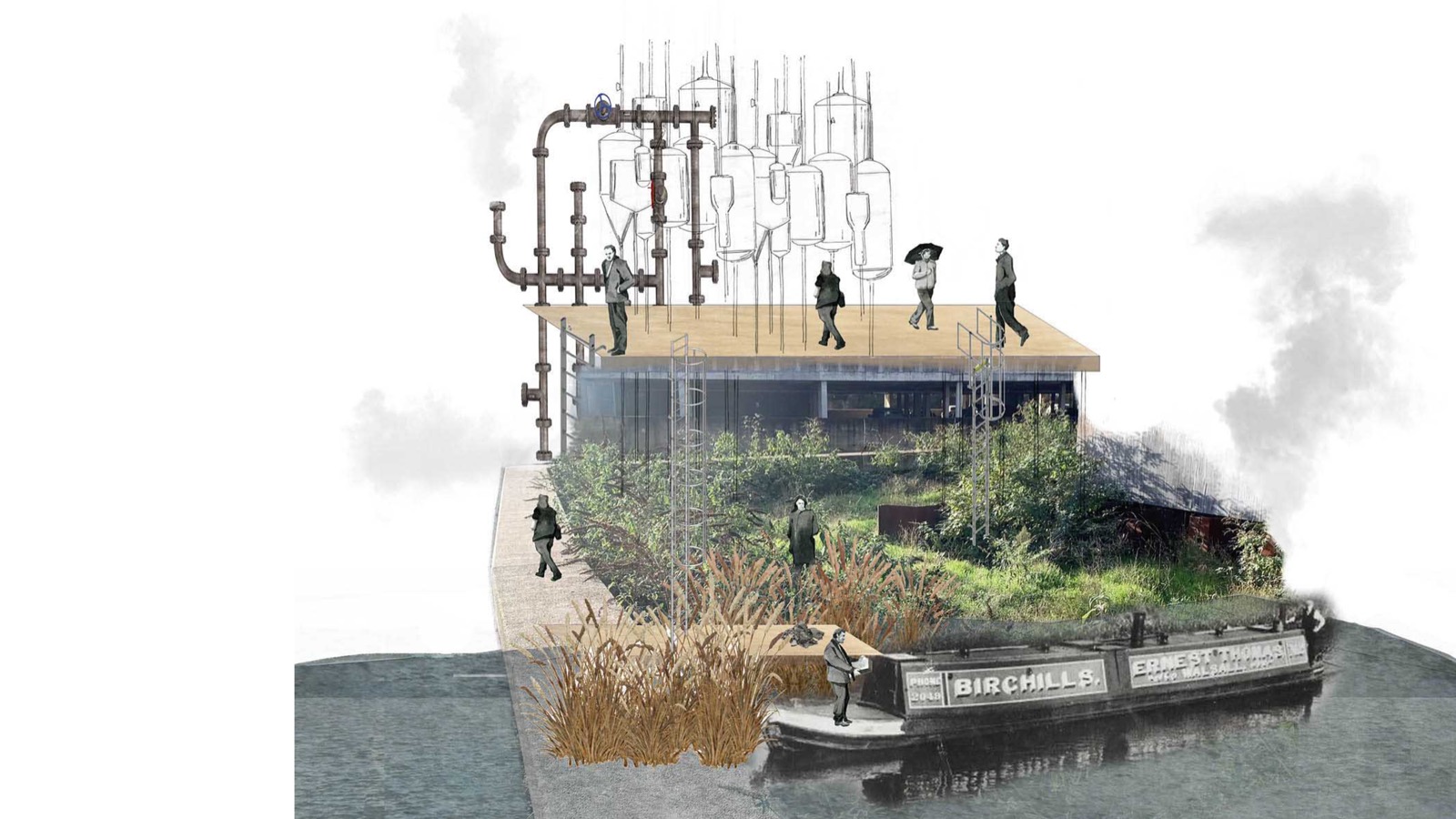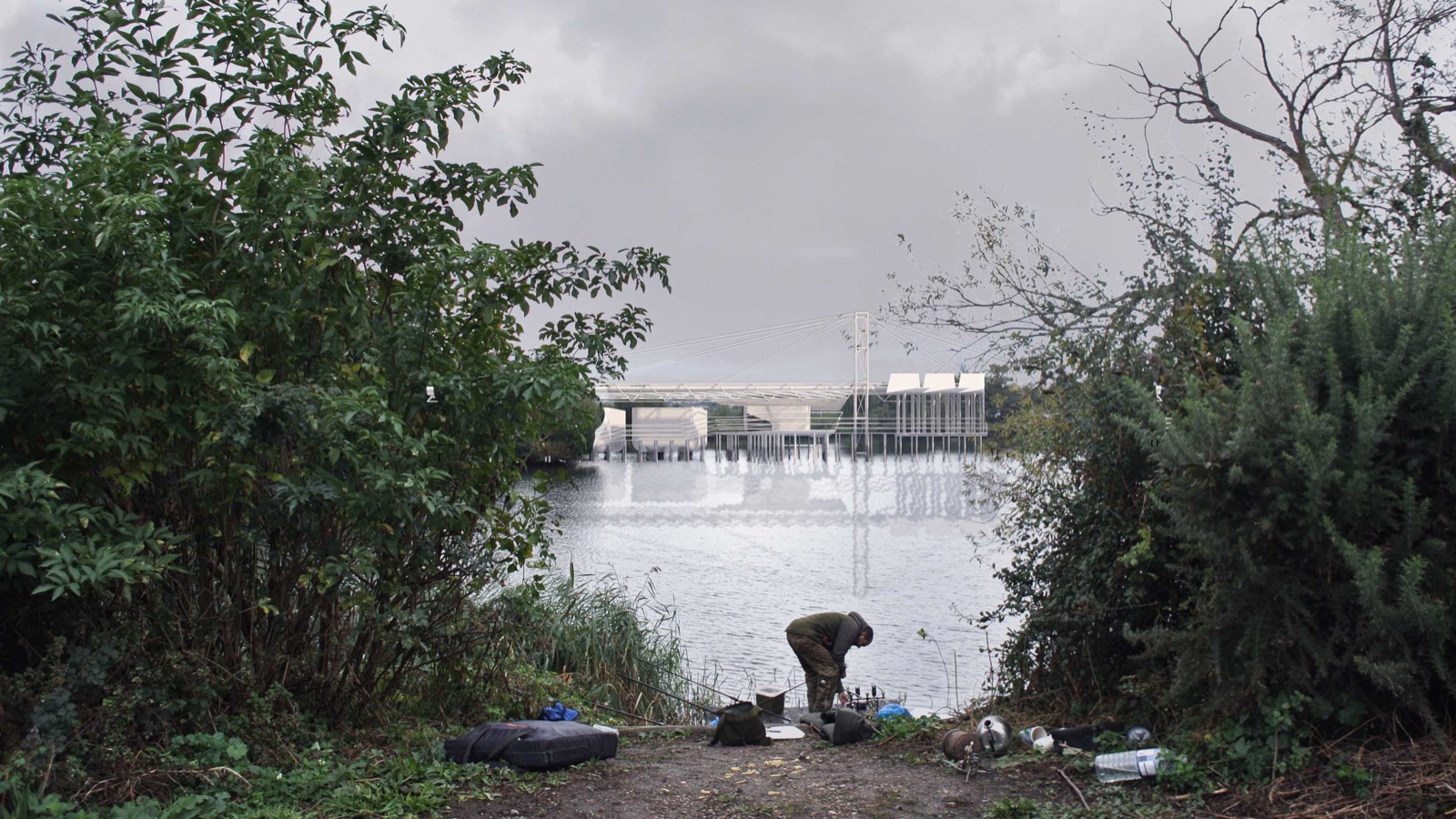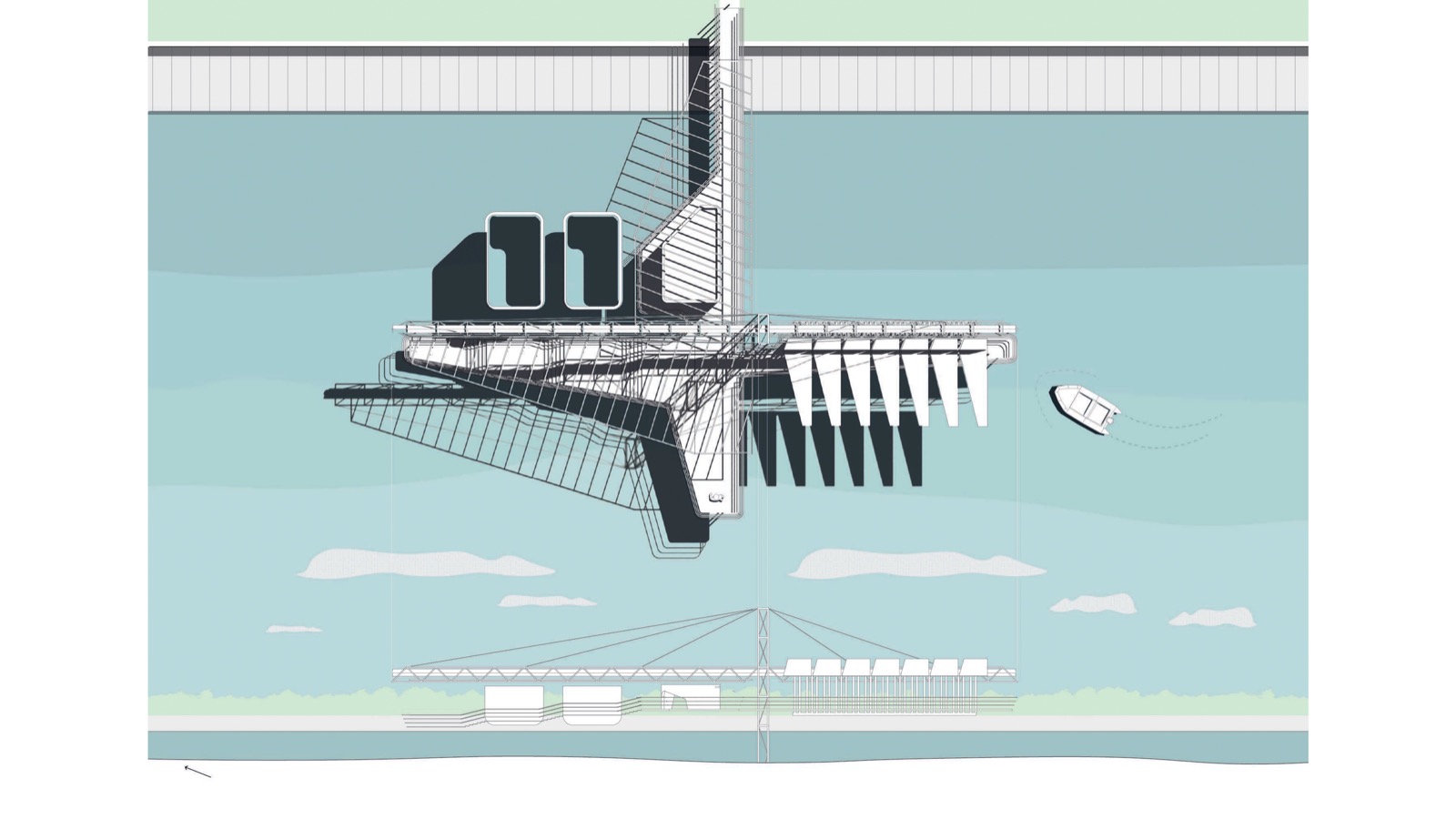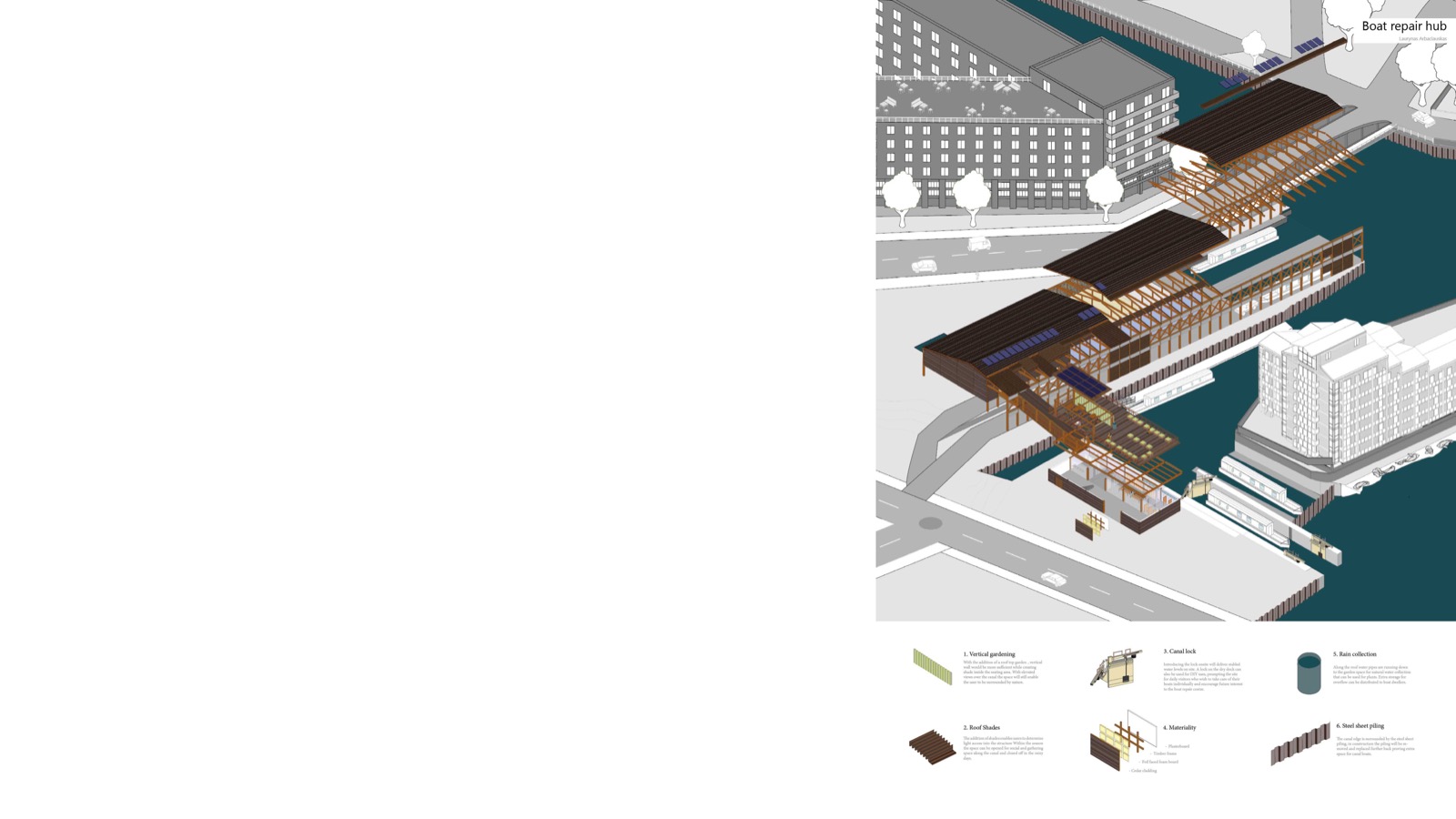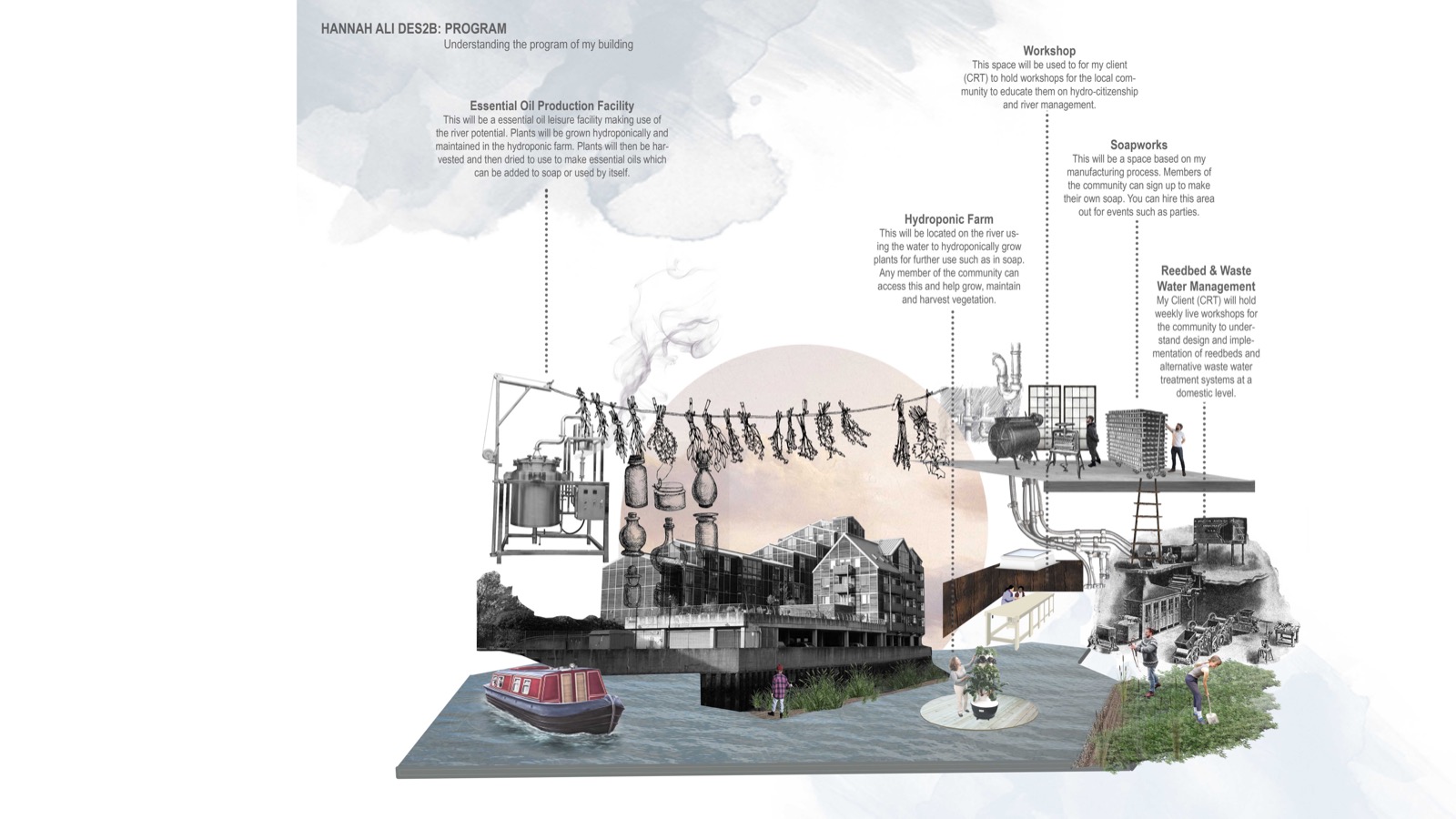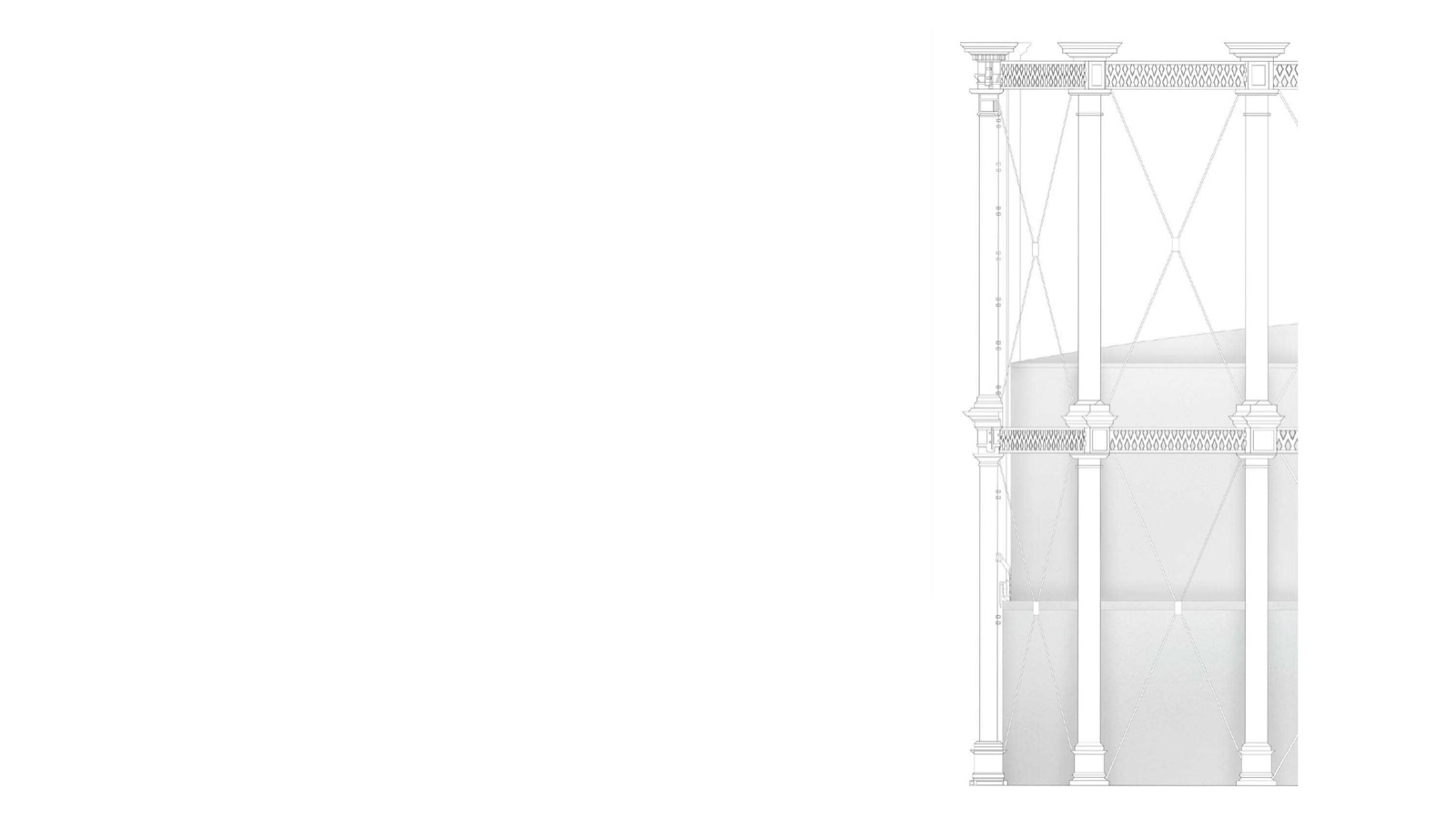Design Studio (Two) One ARCHIVE
YEAR TWO – DS2.1
Tutors: Dr Corinna Dean & Raluca Cirstoc
Dr Corinna Dean established ARCA, the Archive for Rural Contemporary Architecture. ARCA + Drawing Matter will host a workshop this summer at Shatwell Farm, which will construct an interpretation of James Gowan’s shed using organic materials. Her most recent research paper will trace vital materialism of the former dynamite factory on the Hoo Peninsula and host a Temporary Field Station for the Estuary Festival.
Raluca Cirstoc is an architect with expertise, both in practice and research, on ecologies of industrial landscapes and urban development with complex infrastructure. She is currently leading the delivery of a mean-while masterplan for a major regeneration site in the Lee Valley with 5th Studio.
Land / Water – Interwoven Landscapes
The studio builds on Bruno Latour’s (1993) statement, ‘Urban River systems are tangible sites for hybridity between nature and society’. To expand this thinking the two design projects examined how River Lea and urban waterways are part of a crucial ecology which is interconnected with land, society, culture and ecology. In order to understand the ongoing reimagining of the River Lea and its complexities, the studio addressed the site as a series of interconnected agents, beyond the singular building. We applied this approach to the first semester’s brief, a Field Station for an Urban Ecologist in the Walthamstow Wetlands, which sees the coexistence of an operating collection of reservoirs, with a nature reserve and wetlands.
Through a series of lectures by external practices including the Canal + River Trust (CRT), we began to understand how the river and its history developed as a set of engineered navigational channels with a diversity of edge conditions, varying soil conditions, basins of water, manmade manipulation and recent intensification of building, leading to pollution and pressure on natural ecologies.
For Semester 2, our client, the Canal + Rivers Trust, encouraged thinking and brief making to respond to the question: How do we think imaginatively and ecologically about how we live together with urban waterways? Responses included an ethanol harvesting factory to produce fuel for the local houseboat dwellers; a boat repair hub and governance space for the CRT; and a water purification filter works which is built on reclaimed land earmarked for housing to respond to the near future of water scarcity.










